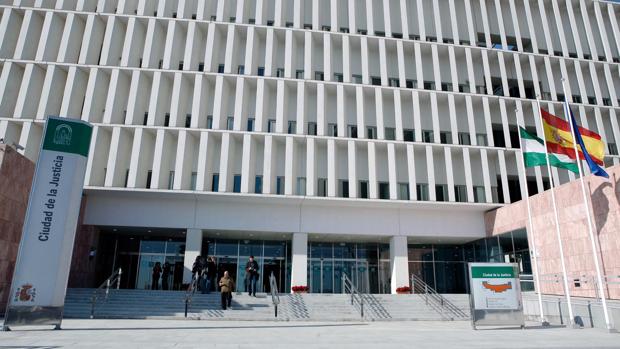Antonio Flores
This user hasn't shared any biographical information
Homepage: http://erva.es/members/aflores/
“Do not lie down but stand up and fight them!"

The Málaga Appeal Court has rejected all grounds for appeal brought by SLM (Surrenda Link Mortgages) against the primary ruling by a Court of Instance in Fuengirola.
In the extensive ruling, the Courts bases its decision on 3 main arguments:
a) SLM had no authorization to sell what the judges deemed as a complex financial product made up of a mortgage loan, and a speculative investment vehicle. Not having a license to operate in Spain renders this proposition unlawful, and as such null and void ab initio.
b) The “lender” misrepresented material facts pertaining to the associated investment risks, labelling the product a safe choice to avoid inheritance tax (IHT) but also, a safe (again) bet to achieve an income. This turned out to be false.
c) SLM sold the product through a network of unqualified financial advisors, and a “selected” group of lawyers who, naturally, had zero financial investment capacitation or knowledge.
The high provincial Court rejects SLM’s attemp to fragment the product into a benign mortgage loan and the investment “arm” of the product, confirming that they could no exist without each other in the open market.
The ruling can be appealed by SLM at the Supreme Court, an appeal that would be seen as cruel, unecessary and a mere delay tactic to prevent the inevitable from happening: the invalidation of the mortgage loans on the claimants´ properties and their right to move on with their lives.
Landsbanki in liquidation (perpetual it seems) and Jyske Bank are trying everything within their reach to have their cases extracted from Spanish Court and dealt with unfamiliar and likely bank-friendly jurisdictions, such as Luxembourg and Denmark.

However, Spanish Courts will have none of that and have confirmed, on appeal too, that at least 9 cases brought by lawyers
on behalf of equity release victims- -Lawbird Legal Services represented by Juan Martínez Soler in this case- against Landsbanki will be entirely ventilated in Spain and, equally, in no less than 3 cases brought against Jyske Bank will also be heard before Spanish judges.
The main argument Spanish banks are invoking is an exclusive jurisdiction clause tied up to the place of location of the property, known in latin as ” La Lex loci rei sitæ “.
The first 2 reports drawn up by the compay Muntaudit (http://muntaudit.es/) have now been received.
One refers to Nykredit/Sydbank and the second one to Finansbanken/Sparekassen Lolland Equity Release products.
The first point that the independent firm of financial auditors has highlighted is that the product was taken out for the purpose of obtaining a tax advantage and securing an income stream. The report then notes the following:
Lawyers acting for a Jyske customer have filed a petition against Jyske Bank to declare foreclosure proceedings null and void,on grounds that the valuation was carried out by an unlicensed valuation company, Gibsons Chartered Surveyors.
And whilst the company’s legality was not put under question, their ability to legally provide valid valuations for mortgage loan purposes in Spain was and therefore, acting lawyers have requested, initially, that foreclure proceedings are halted and annulled and will, at a second stage, apply for the mortgage loan contract to be set aside.
Lawyers acting for the bank have contested the petition by claiming rather confusingly that Jyske Bank A/S London Branch is not Jyske Bank A/S Denmark nor Jyske Bank Gibraltar, and that as a result, they do not come under Spanish laws. This has proven to be a lie.
Also, they have not however contested the fact that only companies authorized by the Bank of Spain can provide valid valuations and insist that, as the loan was “granted” in London, Uk laws apply to the loan.
The repercussions of this could be enourmous for Gibson Chartered Surveyors have worked for Barclays Bank Plc, Newcastle Building Society, Norwich and Peterborough Building Society, Credit Suisse (Gibraltar) Ltd, and ABM Amro Bank when giving out, presumably, hundreds of mortgage loans in Spain.
The ERVA has filed a criminal complaint, with date of 7th of November 2011, against Danske Bank, Nordea Bank, N M Rothschild & Sons, Lex Life & Pension, Landsbanki, Jyske Bank, Finansbanken, Nykredit, Sydbank y Swiss Life, for allegedly conspiring to defraud hundreds of retired people by knowingly, without belief in its truth or reckelessly and carelessly whether it be true of false, attributing specific qualities to a product known as “Equity Release”. These qualities, both proven to be wrong, were that the would a) provide an income and b) allow to lawfully dodge Spanish taxes.
A press release is taking place today, at 17.30, in Marbella, where the press will be made aware of the content of the claim, which is to be posted here shortly.
The Equity Release Victims Association (ERVA) – (www.erva.es) is now up and running. Having been formally incorporated last Wednesday, through a Marbella Notary Public, it has, among its aims, denouncing the magnitude of the infringements committed by a number of banks, mostly Scandinavian who, in clear breach of applicable legislation (regulatory, consumer protection, civil, banking, financial, and not the least, ethical), devised a tax-evading scheme that would be offered to pensioners to profit from them, using the illicit excuse that it was suicidal not to have a mortgage registered against their properties.
The ERVA will be formally filing claims with the appropriate Government offices, requesting formally not only that these products are banned in future but also, that the banks that offered them are disciplined in accordance to the seriousness of the offences committed. Of particular importance are:
The list of proposed actions is not exhaustive and may include other proposals in the countries of origin of the offending banks.
—
Original Post: The Equity Release Victims Association Up and Running